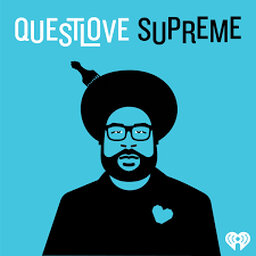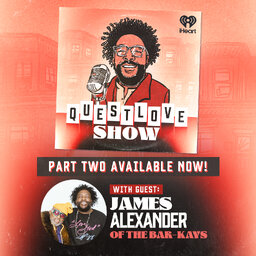QLS Classic: Michael Brauer
Grammy winning mix engineer Michael Brauer talks about the art of engineering, his studio secrets and what it was like working with artists such as Coldplay, Luther Vandross, Aretha Franklin, Grace Jones and more.
Learn more about your ad-choices at https://www.iheartpodcastnetwork.com
In 1 playlist(s)
The Questlove Show
The Questlove Show builds on the award-winning Questlove Supreme podcast, bringing listeners into in…Social links
Follow podcast
Recent clips

QLS Classic: Lena Waithe
1:32:57

BONUS: James Alexander on The Bar-Kays' Rivalry With Cameo
09:18

James Alexander of The Bar-Kays Part 2
1:01:04
 The Questlove Show
The Questlove Show